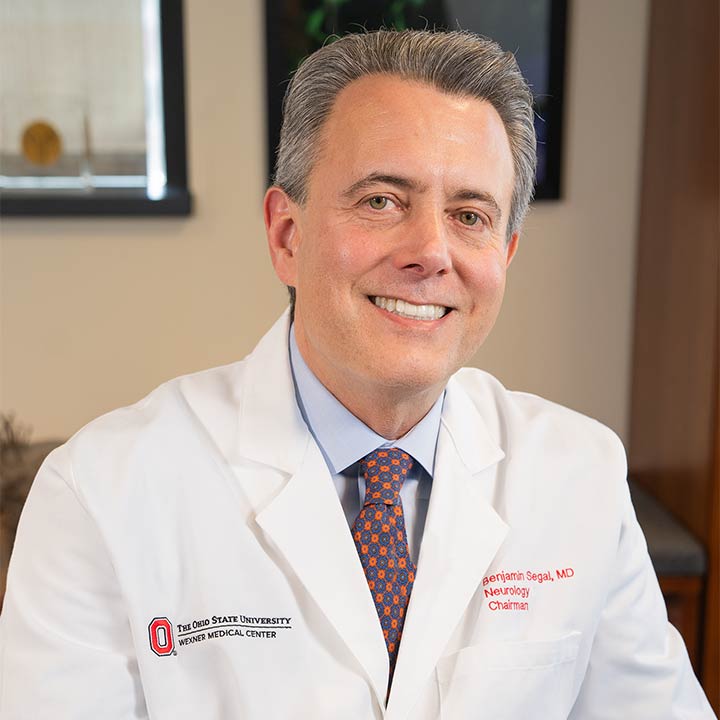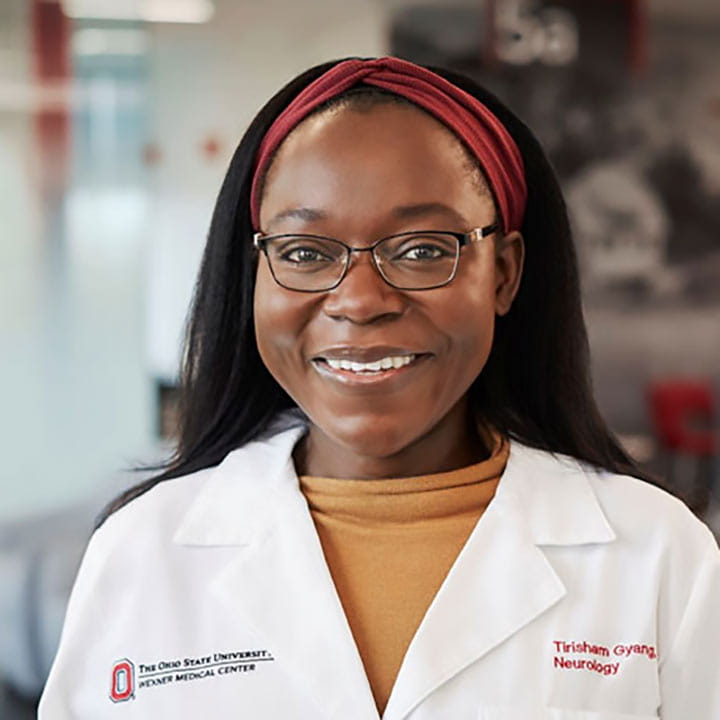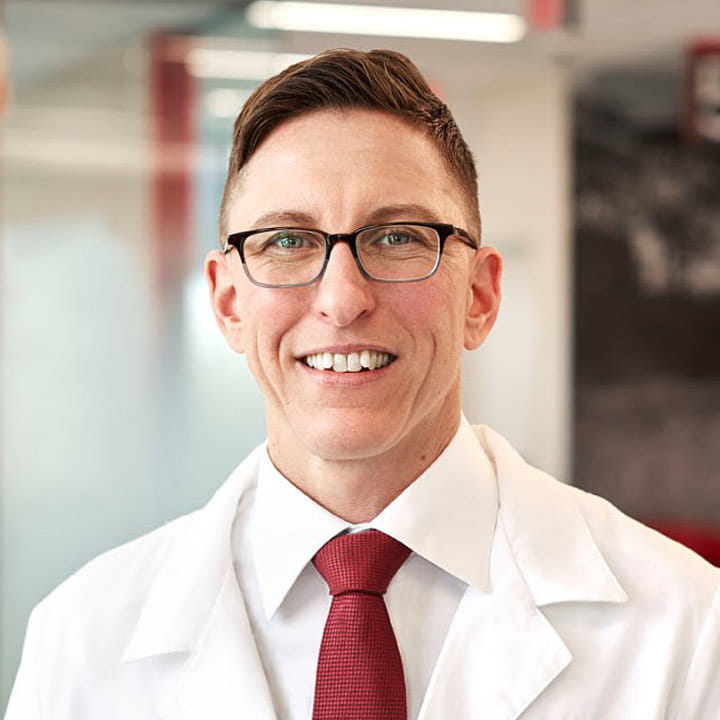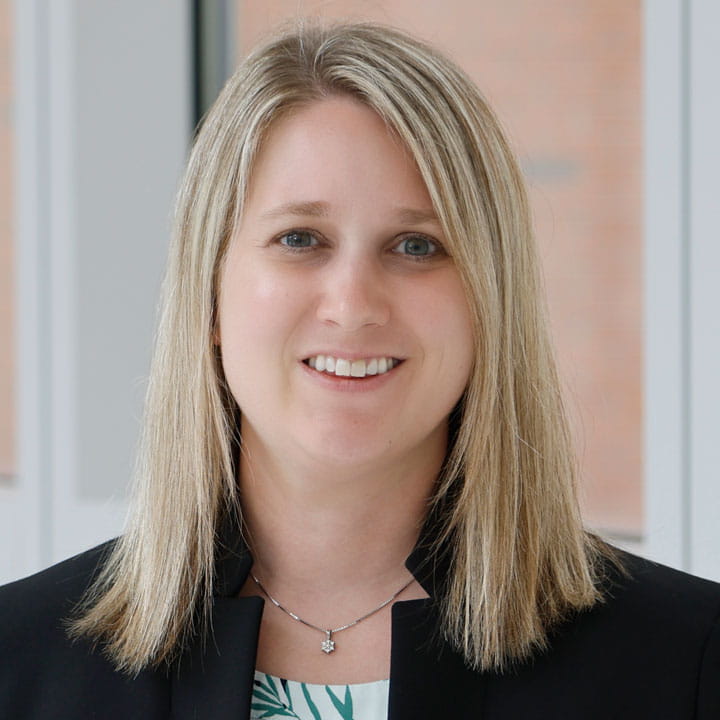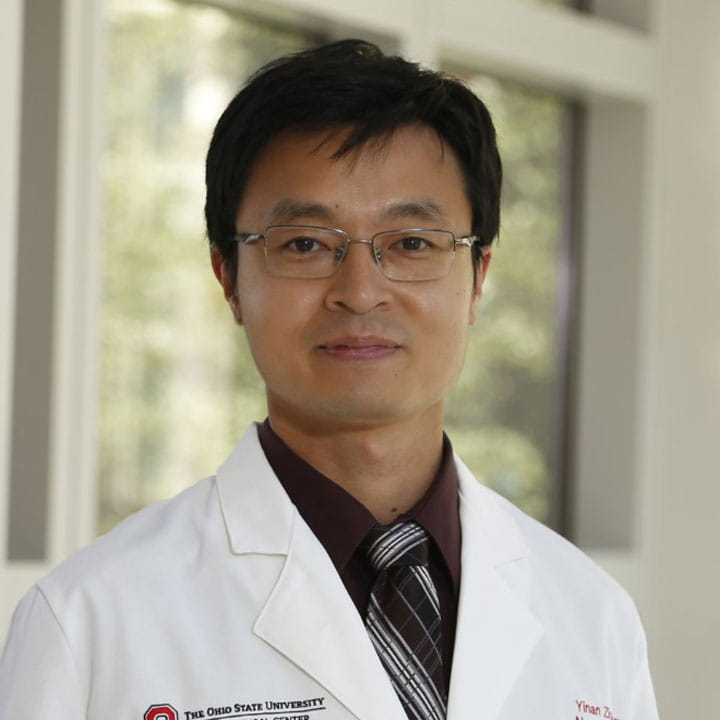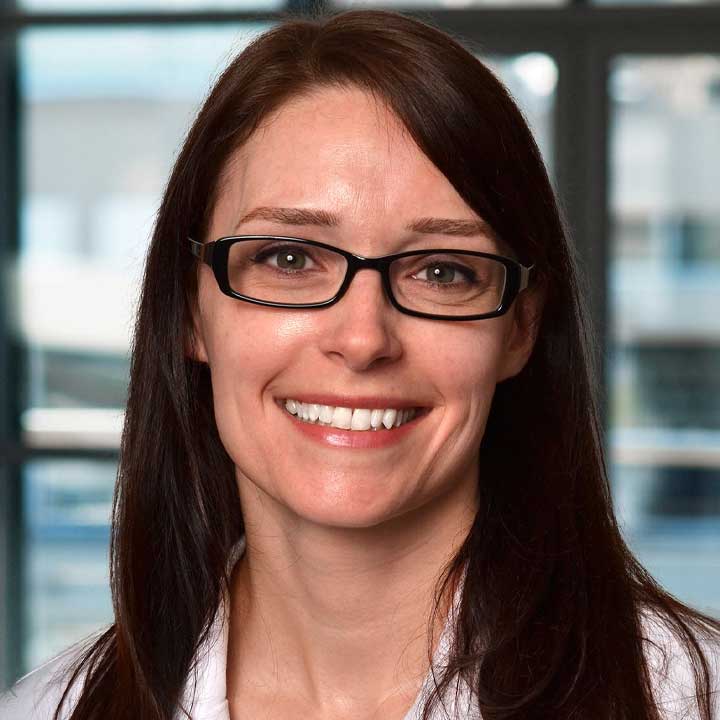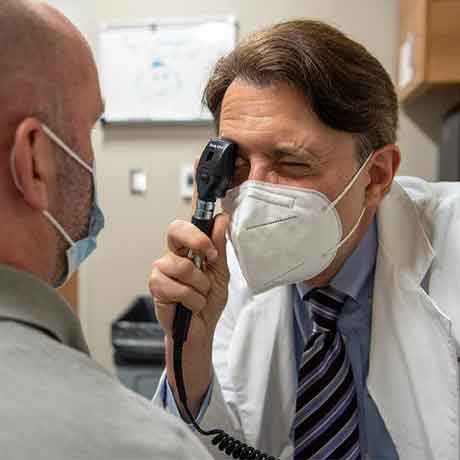
About the MS program at Ohio State
Learn more about the Division of Multiple Sclerosis and Neuroimmunology and how to set up an appointment for your patient.
 About the Division
About the DivisionThe Multiple Sclerosis (MS) and Neuroimmunology Division within the Department of Neurology at The Ohio State University Wexner Medical Center is one of the most advanced and comprehensive programs in the United States. It brings together world-renowned clinicians, researchers and educators who specialize in MS and related diseases, making it a destination center for patients, as well as physicians, learners, and researchers from well beyond Central Ohio.
We offer the latest disease-modifying therapies, symptomatic treatments and rehabilitative interventions with a goal of preventing relapses and slowing or halting neurological decline. These clinical advancements are strengthened by a robust research portfolio that includes fundamental studies on the causes of MS and active clinical trials of new therapies, conducted by a faculty ardently committed to training the next generation of MS specialists and neuro-immunologists.
Our immediate goal is to provide comprehensive, innovative and personalized care for the diagnosis and treatment of MS and related diseases that improves the quality of life for patients and their families. Our ultimate goal is to foster research that will lead to more effective disease-modifying therapies for progressive and relapsing forms of MS, and eventually a cure. We are focused on developing interventions that initiate healing in the nervous system and restoring lost neurological functions to individuals with MS and other disorders.
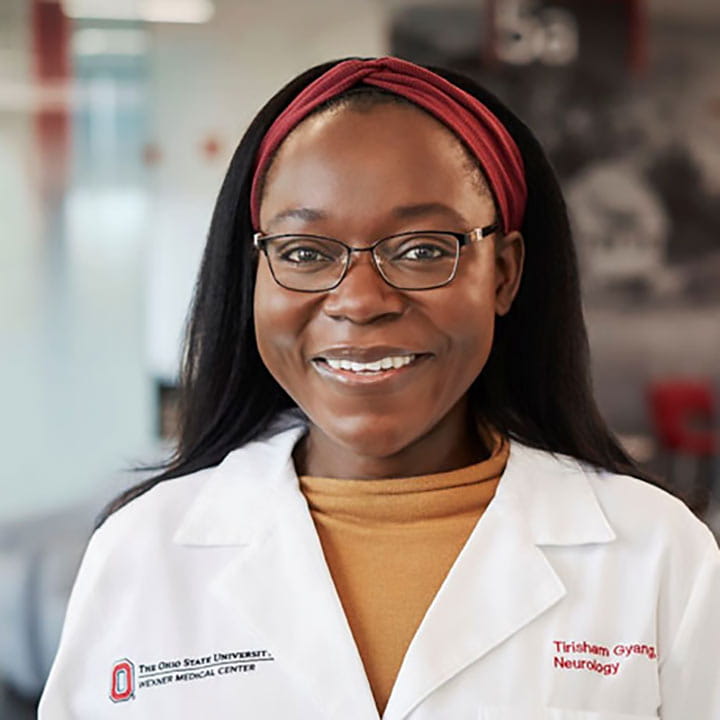 Welcome from Division Director,
Welcome from Division Director,Medical professionals, scientists and students focused on MS and neuroimmunology research — ranging from fundamental approaches using animal models to investigator-initiated clinical studies and trials — will find a rich and supportive environment at The Ohio State University. We offer a collaborative atmosphere that promotes rigor and innovation, and we are dedicated to advancing global knowledge about MS and related disorders.
The Department of Neurology at the Ohio State University has a long history of a dedicated commitment to education. We have world-class faculty and staff, state-of-the-art amenities, and novel technologies, all of which enables trainees to gain experience in the management of complex pathologies and apply innovative and high-quality medical care for a diverse patient population. Learn more about our residency and fellowship programs.
